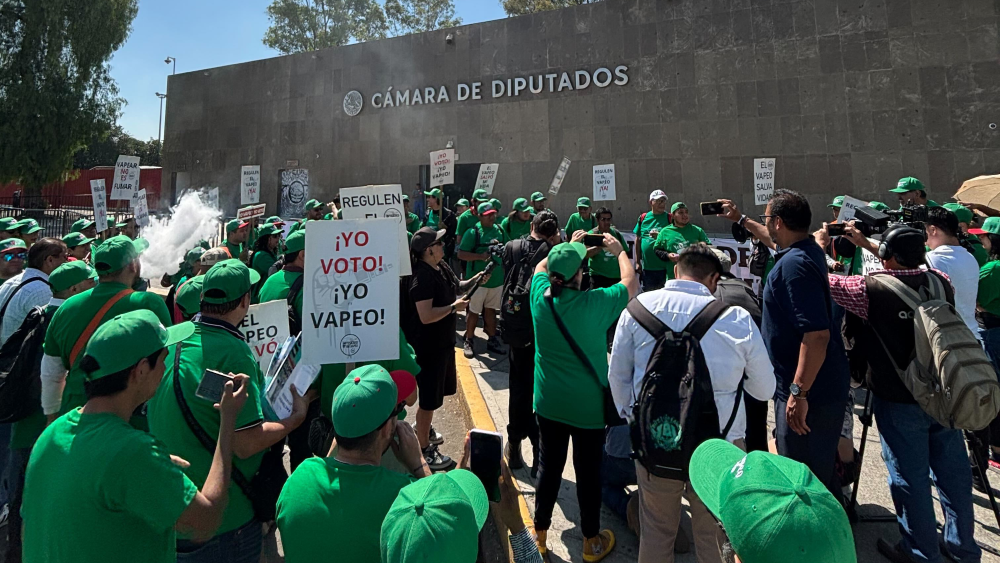Naturally, the ban aimed to address the potential long-term consequences of nicotine addiction, however, it was met with mixed reactions. While some supported the government’s efforts to protect public health and prevent underage vaping, others criticized the move, arguing that it limited adult smokers’ access to a potentially less harmful alternative to traditional cigarettes. Additionally, there were concerns about the impact of the ban on the vaping industry, including retailers and manufacturers.
Overall, the vaping ban in Mexico sparked debates about the regulation of tobacco and nicotine products, highlighting the complexities involved in balancing public health concerns with individual freedoms and economic interests. It also underscored the need for evidence-based policymaking and comprehensive approaches to address tobacco and nicotine use in the country.
A proposal to include the ban in the constitution
As a culmination of all this, earlier this month hundreds of vapers gathered in front of Mexico’s Congress of the Union to protest against the ban, advocating for a risk-based regulation instead. Organized jointly by the World Vapers’ Alliance (WVA) and All Vape Mexico, the demonstration emphasized the need to lift the ban whilst urging President Andrés Manuel López Obrador’s to put a stop to a proposed reform seeking to include the ban in the Constitution.
The protesters called for the implementation of a risk-based regulatory framework that would enable adult smokers to access vaping products for smoking cessation purposes. WVA policy manager Alberto Gómez Hernández, highlighted the unintended consequences of the ban, noting that it has failed to prevent underage vaping while hindering smokers’ access to safer alternatives. He emphasized the necessity of reversing the ban based on scientific evidence and the successful experiences of other countries.
Bans feed black markets
Despite the ban, highlighted the WVA, vaping products remain accessible through informal channels such as underground vape shops and the black market which is controlled by organized crime. In this case, the fact that the products are not regulated compromises their safety and quality, posing potential risks to users.
Deputy Sergio Barrera emphasized the importance of clear regulations to govern the production, distribution, and consumption of vaping products. He stressed the need for comprehensive rules to address concerns about youth access while providing smokers with viable alternatives to traditional cigarettes.
Antonio Toscano, spokesperson for All Vape México, criticized President López Obrador’s prohibitionist approach, arguing that it undermines adult users’ access to safer alternatives and drives them towards unregulated black market products. He emphasized that effective regulation could significantly improve public health outcomes and save countless lives compared to prohibitionist policies.
Mexico cannot afford to get it wrong
In Mexico, where smoking-related deaths exceed 40,000 annually, the urgency of addressing smoking cessation is paramount. With nearly 15 million smokers nationwide, Mexico has one of the highest smoking rates in South America. This has been confirmed by data from the Global Burden of Disease Study, and has been attributed to various factors, including cultural norms, socioeconomic disparities, and the availability of cheap tobacco products.
In contrast, some countries in South America have made significant progress in reducing smoking rates, with Uruguay and Brazil leading the way and Chile, Argentina, and Colombia, next up on the list.
Overall, in comparison to the rest of South America, Mexico stands out for its relatively high prevalence of tobacco use, highlighting the need for continued efforts to address smoking-related issues. Promoting smoking cessation initiatives in the country, should include the use of novel nicotine products as harm reduction tools, which science has consistently shown are the most effective smoking cessation tools to date.








